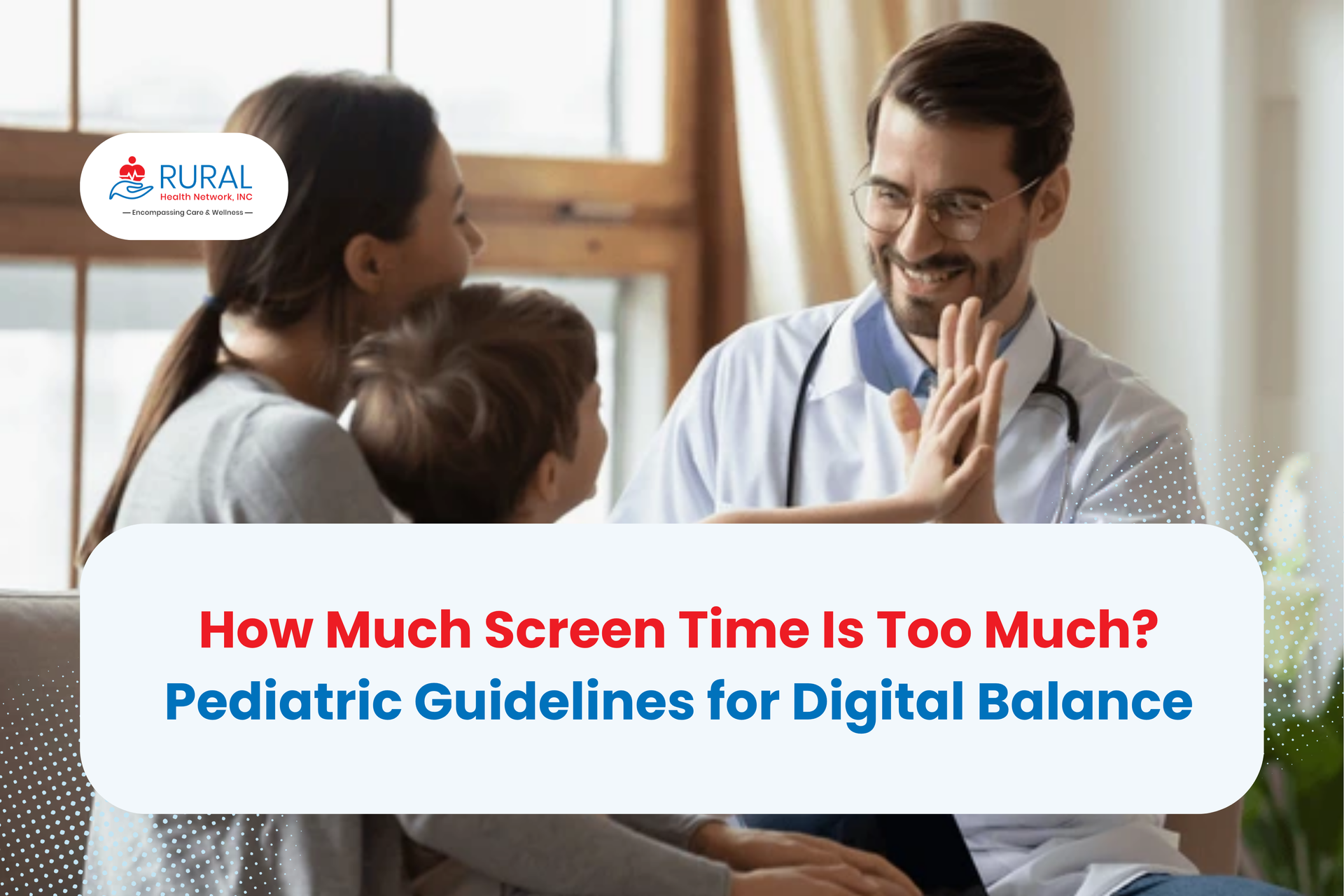Understanding Chronic Illnesses
Chronic health diseases are lifelong conditions requiring continuous management and care. In contrast, acute illnesses are sudden and often brief.
Managing chronic conditions involves regular medical treatment, informed choices, goal-setting, and proactive health strategies.
Here’s a look at some of the most common chronic diseases:
Diabetes
Diabetes is a chronic condition that affects how the body turns food into energy. It occurs when your blood sugar level gets too high because your body either doesn’t make enough insulin (Type 1) or can’t use it properly (Type 2).
Hypertension
Hypertension is a long-term condition in which blood pressure remains consistently elevated. The constant pressure against the artery walls can potentially cause severe health issues like heart disease and stroke.
Asthma
Asthma is a chronic respiratory condition that causes airway inflammation and constriction, leading to breathing difficulties, coughing, wheezing, and shortness of breath.
Effectively managing these conditions helps reduce daily challenges and overall healthcare costs.
The Role of Family Medicine Doctors
Family medicine is about providing comprehensive care across all stages of life, from children to seniors.
Family medicine doctors are exceptionally skilled at managing chronic diseases because they have a broad range of knowledge and focus on building long-term relationships with their patients.
Let’s break down how family doctors handle chronic conditions.
Personalized Care Plans
Family medicine doctors are experts at customizing care plans for your unique needs, especially when it comes to managing chronic illnesses.
Here are five examples of personalized treatment strategies:
Customized Medication Regimens
Example: For hypertension, the doctor prescribes a specific antihypertensive and adjusts the dosage based on blood pressure readings and other medications.
Individualized Diet Plans
Example:
A person with Type 2 diabetes gets a diet plan tailored to their habits and glucose goals, focusing on low-glycemic foods and personalized carbohydrate counting.
Personalized Exercise Programs
Example: For someone with COPD, the doctor recommends a low-intensity aerobic and breathing exercise program designed to improve lung function and stamina while considering physical limitations.
Tailored Stress Management Techniques
Example: A patient with chronic anxiety may use stress reduction methods like guided imagery or progressive muscle relaxation customized to their unique stressors.
Behavioral Health Integration
Example: An individual with major depressive disorder might receive a treatment plan that includes a combination of personalized psychotherapy and medication, with adjustments based on response and side effects.
Coordinating Comprehensive Care
Family medicine doctors are pivotal in a patient's healthcare journey, serving as coordinators between you and specialists and other providers. Chronic conditions often require a team to address all facets of a patient’s health, resulting in more
coordinated and effective treatment.
Here’s a glimpse into how this collaborative approach works in practice:
Diabetes Management
A patient with diabetes might work with a family medicine doctor, an endocrinologist, a dietitian, and a diabetes educator. They manage blood sugar levels, optimize medication, create dietary plans, and educate the patient on self-care strategies.
Heart Disease Care
For a patient with heart disease, a cardiologist, family medicine doctor, nutritionist, and physical therapist often team up to provide comprehensive care. They work together to monitor heart function, adjust medications, design a heart-healthy diet, and craft an exercise plan to enhance cardiovascular health.
Asthma Care
Managing chronic asthma or chronic obstructive pulmonary disease (COPD) involves a pulmonologist, allergist, family medicine doctor, and respiratory therapist. This team focuses on symptom management, addressing allergy triggers, optimizing medication use, and improving breathing techniques.
Chronic Pain Management
A person with chronic pain might see a pain specialist, family medicine doctor, physical therapist, and mental health counselor. These professionals collaborate on pain relief strategies, physical rehabilitation, and psychological support.
Preventive Care and Health Maintenance
Family medicine emphasizes preventive care, aiming to tackle health issues before they become problems. Focusing on prevention enhances your long-term health and helps you do your part in reducing the pressure on the healthcare system.
Here’s how a proactive approach makes a difference:
Regular Check-Ups and Screenings
Routine check-ups and screenings catch potential issues early, allowing for timely intervention. For example, assessing blood pressure for heart disease or monitoring blood sugar levels for diabetes can prevent complications and improve management.
Vaccinations
Staying up to date with vaccinations is essential, especially for those with chronic conditions. For instance, flu vaccines can help prevent respiratory infections that might worsen conditions like asthma or COPD.
Lifestyle Modifications
Lifestyle changes can profoundly impact the management of chronic conditions and overall health. This includes:
- Nutrition:
A balanced diet manages diabetes and hypertension by reducing sodium and increasing fiber.
- Exercise: Regular physical activity helps control weight and improve cardiovascular health. Engage in activities like walking or swimming as needed.
- Mental Health:
Mindfulness and therapy enhance overall health and chronic condition management by reducing stress, improving mental health, and promoting healthier lifestyle choices.
Education and Self-Management
Educating patients about their conditions and providing self-management strategies help them make informed decisions, adhere to treatment plans, and reduce the risk of complications.
Medication Adherence
Taking prescribed medications as directed is paramount in managing chronic conditions. Regular reviews and adjustments ensure medications remain effective and help prevent adverse outcomes.
Utilizing Technology in Chronic Disease Management
Technology is a game-changer for managing chronic diseases, and family medicine doctors are leading the charge. With tools like
electronic health record (EHR) systems, telemedicine, and patient portals, family doctors promote more efficient and personalized care.
Here’s how family doctors are using technology to enhance care:
Electronic Health Records
EHRs centralize your health information into one system, enabling doctors to monitor progress, make informed decisions, and coordinate with specialists more effectively.
Telemedicine
Virtual appointments make it easy to stay in touch with your doctor for follow-ups or quick consultations, reducing in-person visits and allowing you to manage your condition from home.
Remote Monitoring Tools
Devices like blood pressure cuffs and blood glucose monitors send real-time data to your doctor, helping you catch issues early and manage your condition without frequent office visits.
Patient Portals and Health Apps
Patient portals allow access to medical records, test results, and direct messaging with your doctor. Health apps offer medication reminders, symptom tracking, and personalized tips for convenience.
Family Medicine at the Forefront of Chronic Disease Management
Family medicine doctors are the unsung heroes in managing chronic illnesses. By getting to know your medical history, lifestyle, and preferences, they can create tailored management plans that help you lead a healthier, happier life.
When you have a doctor who understands you and your health journey, it makes managing chronic illnesses so much easier. Take a moment to invest in this important relationship. Family medicine doctors are here to support you every step of the way.
Compassionate Chronic Illness Care in Newman, California
At
Rural Health Network, your health journey is our priority. We offer customized care designed to meet your specific needs, from preventive screenings to chronic illness management, supporting you and your family throughout your healthcare experience.
Want to see how personalized family medicine can make a difference?
Book an appointment today or call us at (209) 862-3604.












